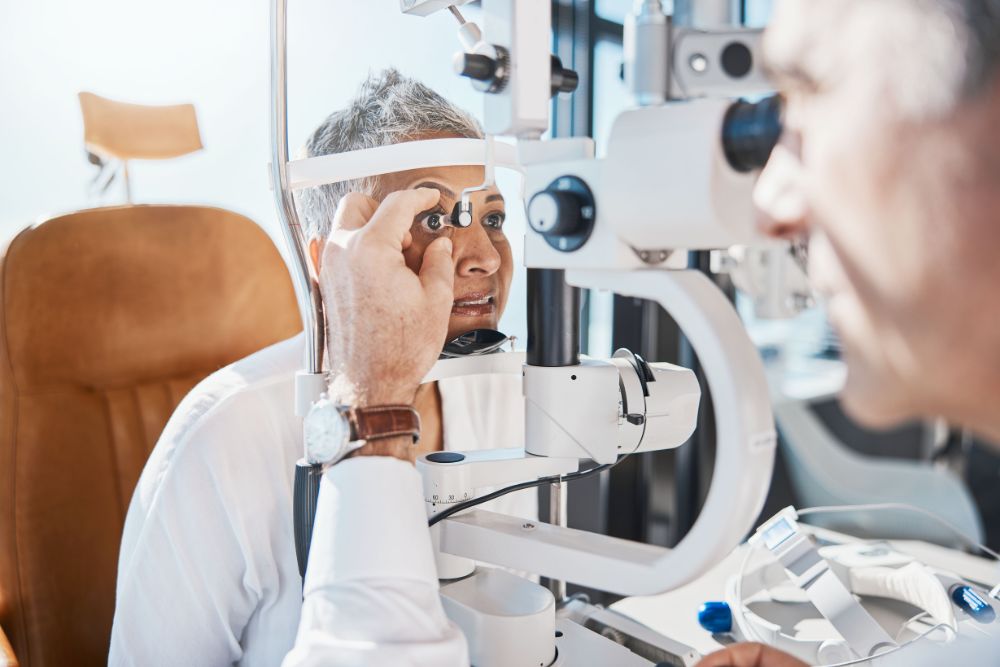Diabetes and Your Eyes: Don’t Wait for Symptoms to Get a Retina Exam

Diabetes is a chronic condition that can impact nearly every part of the body — including your eyes. One of the most serious risks is diabetic retinopathy, a condition that damages the retina and can lead to vision loss. The problem? It often develops without symptoms until it’s already affecting your sight. That’s why regular retina exams are essential, even if your vision seems perfectly normal.
What is Diabetic Retinopathy?
Diabetic retinopathy is a complication of diabetes that affects the light-sensitive tissue at the back of the eye, called the retina. It occurs when high blood sugar damages the tiny blood vessels that nourish the retina, causing them to swell, leak, or close off entirely. In response, the eye may try to grow new blood vessels, but these are often fragile and abnormal, leading to further damage.
Diabetic Retinopathy Progression
While effectively managing diabetes can help protect your vision, diabetic retinopathy isn't always preventable. Over time, diabetes can damage the blood vessels in the retina, causing them to leak fluid, swell, or become blocked. This can lead to symptoms such as blurry vision and difficulty seeing in low light, which typically indicate that the condition has already progressed.
In advanced stages, the retina can't get enough oxygen, leading to the growth of new, fragile blood vessels that are prone to bleeding and the formation of scar tissue. If left untreated, diabetic retinopathy can cause permanent vision loss and other complications like retinal detachment, which is a medical emergency that requires immediate attention.
The Importance of Early Intervention
Scheduling doctors' appointments isn't enjoyable, and it might seem unnecessary if your vision seems fine and you don't have any concerns. However, since diabetic retinopathy can have no symptoms during its early stages, it is crucial to see a retina specialist for a dilated eye exam at least once a year. Early detection and timely treatment can halt the disease's progression, resulting in better vision outcomes.
If detected early, treatments such as intravitreal injections, laser therapy, or close monitoring can help preserve your vision and prevent more serious complications. In many cases, timely care can make the difference between maintaining your sight and permanent loss.
Schedule an Appointment With a Retina Specialist
If you have diabetes, seeing a retina specialist is essential, in addition to your general ophthalmologist and diabetes management team. At California Retina Consultants, we can effectively detect and treat diabetic retinopathy. Contact us today for more information or to schedule an appointment with one of our world-class retina specialists. We proudly serve patients throughout Central California, including Bakersfield, San Luis Obispo, Santa Barbara, and Valencia.
